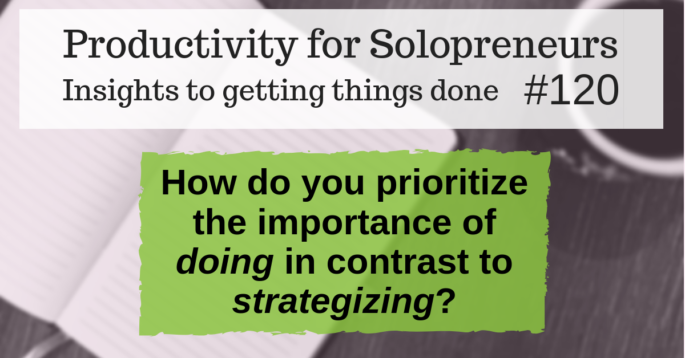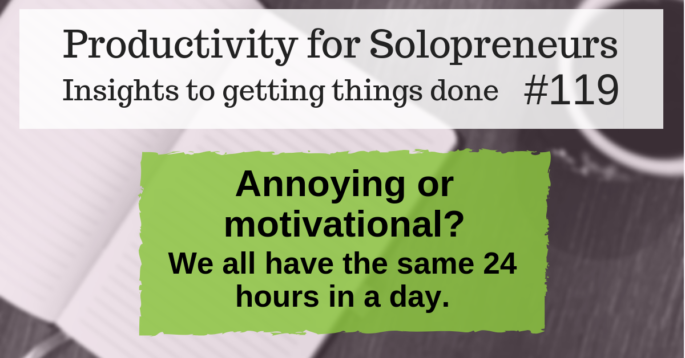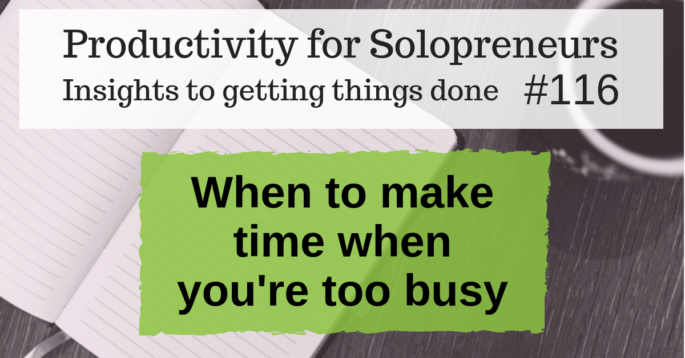Someone recently asked me how I prioritize the importance of doing in contract to strategizing (or planning).
She said that she finds DOING is 10x’s better than having a perfect strategy.
But it can be a whole bunch of work in the wrong direction, which isn’t great either.
So what do you do?
I want to start by saying that there is no perfect strategy.
In our desire to have the impact and results that we want we can get caught up in doing things the “right” way.
And a lot of us can get so caught up in creating and executing that perfect strategy that we keep putting off the thing we’re actually trying to accomplish.
We plan and plan and plan and plan.
When we start the work, we want it to be done so very well, that the end date keeps getting pushed back and we don’t end up with the results or the impact that we wanted.
Basically, you can end up procrastinating something important through a desire to do it perfectly.
You might forget that it’s important to make progress, and not wait for perfection.
It’s a whole lot better to get something out there that’s imperfect, unfinished, or unnamed (as the case may be) than to wait for things to be *just* right or perfect.
And you also need to balance that with planning.
You don’t want the only thing you’re consistent about to be that you’re throwing undercooked spaghetti at the wall and wondering why NOTHING ever sticks.
Meaning, if you do that once, fine. Learn from it and maybe cook the spaghetti a bit more next time.
In other words, do it badly first, then look at what worked and what didn’t.
You have a start.
No one else is going to think you did it badly because they didn’t go into with the HUGE expectations that you did, they’re ONLY seeing what happened.
Let’s take it into more personal terms.
A week from today I’m hosting a 1/2 day workshop.
It’s the first time I’ve hosted a workshop in over 3 years and the content is completely different.
But it is material I’ve taught before, so I don’t have to completely write new content.
When I started planning it I thought I should host it in a hotel, have tables with white table cloths that hit the floor, have a microphone, maybe be recorded, and have the perfect powerpoint presentation (or slide deck).
And I thought that before I started marketing it I should have all the marketing planned out, the fliers created, the social media posts and images created, all emails written, and a list of everyone that I wanted to call and personally invite written.
And that FREAKED me out. Because it meant I needed about 2 1/2 months of lead time and for the timing with some other things I wanted to happen to work I needed the workshop to happen in about 6 weeks.
So, I reset my expectations.
What absolutely needed to be done now so that I could start sharing this workshop 3-4 weeks out from it happening?
What could I work on and figure out during that 3-4 weeks before the event?
And what expectations can I let go of this time around to have more time for some other more important things?
It was more important for me to get it out there for the first time and have some experience with it than to try to get everything perfect the first time.
Sometimes it’s about doing enough planning so you can start moving in the right direction.
Again, it’s about making progress and not waiting for perfection.





